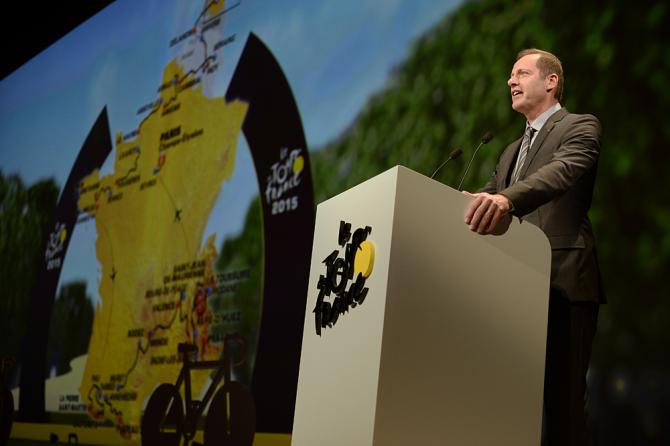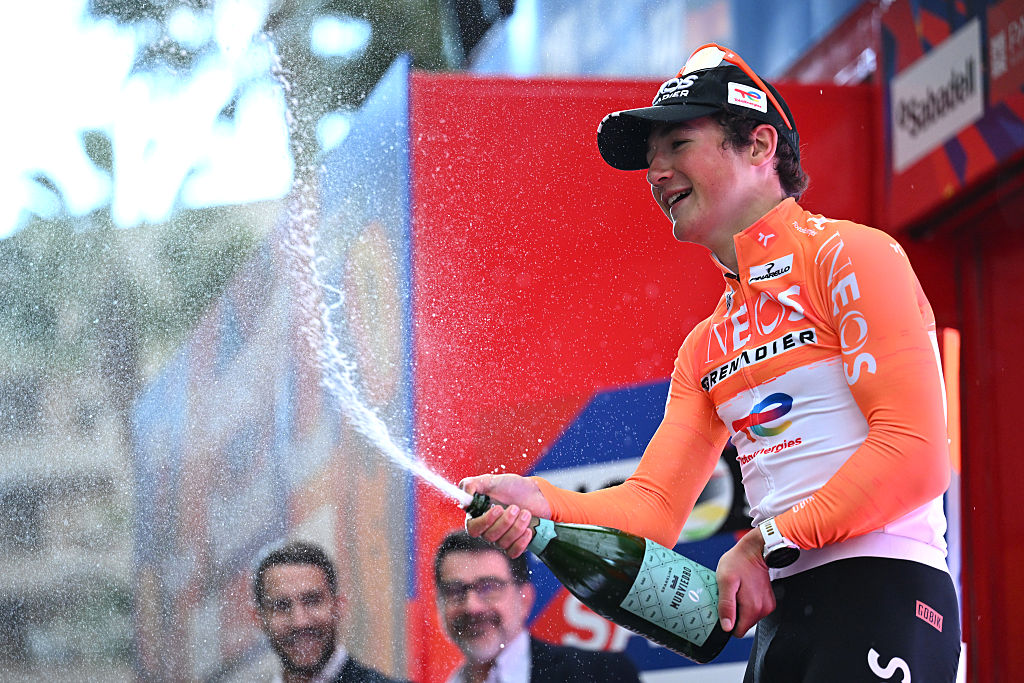Tour de France organisers threaten to pull races from UCI calendar over reforms
ASO worried about delays in proposed reforms
The latest race content, interviews, features, reviews and expert buying guides, direct to your inbox!
You are now subscribed
Your newsletter sign-up was successful

Tour de France organiser Amaury Sport Organisation (ASO) has reportedly threatened to pull its races from the UCI’s calendar due to a lack of progress with the proposed reforms. According to Reuters, ASO sent a letter to cycling’s governing body stating that it would remove it races from the calendar should the reforms not go ahead.
Tour de France contenders test their form at the Critérium du Dauphiné
Nibali: Winning another Tour de France is not an obsession
Degenkolb shrugs off pressure, aims for Tour de France stage win
Galibier expected to be cut from Tour de France stage to L’Alpe d’Huez
UCI trying to avoid a war with ASO over pro cycling reforms
Tour of California splits with technical directors Medalist Sports
Reuters says that ASO’s primary worry is the clashing of events on the calendar. ASO organises a number of major races including the Tour de France, Critérium du Dauphiné, Paris-Nice, Paris-Roubaix, Flèche Wallonne and Liège-Bastogne-Liège. Paris-Nice currently clashes with Tirreno-Adriatico, while the final weekend of the Dauphiné overlapping with the start of the Tour de Suisse.
The split would not mean that the races are cancelled but would take place separately to the WorldTour calendar. This would give ASO the freedom to select any team that races, without the restrictions that the UCI WorldTour circuit imposes on them.
The UCI has plans to bring about major reforms to the structure of cycling with a view to streamlining the calendar. It is hoped that the plans can be put in place for 2017 but discussions with teams and organisers have stalled as they have failed to reach an agreement. According to Reuters, the Professional Cycling Council voted on the reform this week but it has not been validated by the UCI’s management committee at a two-day meeting this week in Aigle, Switzerland.
Despite the beligerent position of ASO, the UCI told Cyclingnews that it is hopeful the long-awaited reforms will move forward.
“The Union Cycliste Internationale (UCI) has been working for many months on the reform of men’s professional road cycling in a spirit of openness and collaboration with all stakeholders. There is a general consensus on the direction towards which the reform should be driven," the UCI told Cyclingnews in a statement.
"We are hopeful to finalise soon our discussions with all stakeholders whether races organisers, teams, riders, around a project that will restore the credibility in our sport, promote the sport in both existing and new markets, make the cycling season understood and attractive to fans and recognise the UCI WorldTour as part of a larger and interdependent system.”
The latest race content, interviews, features, reviews and expert buying guides, direct to your inbox!
Power struggle
This is not the first time that ASO has threatened to pull the Tour de France from the UCI's calendar.
In 2007, ASO threatened to withdraw its race from UCI control because the governing body insisted the race allow the Unibet squad to compete. The ASO argued that the team was illegal under French laws that prohibit gambling, but ever since the inception of the ProTour, now the WorldTour, the organisers have railed against the rules that require them to invite all of the top teams. In the end, the Tour went forward without Unibet, under UCI sanctioning.
The ASO's fight with the UCI spilled over into the 2008 season, after the Astana team was granted a ProTour licence despite Alexander Vinokourov and teammate Andrey Kashechkin both testing positive for blood transfusions during or after the 2007 Tour. The ASO organised both Paris-Nice and Tour de France under the auspices of the French cycling federation (FFC), bringing in the AFLD to perform doping controls.
The ASO succeeded in keeping Astana from the Tour de France in 2008, denying the defending champion Alberto Contador a chance to race. The AFLD launched a test for a new form of EPO known as CERA in time for the Tour, and caught a number of high profile riders for this or other forms of blood boosters, including Riccardo Riccò, Manuel Beltrán, Moisés Dueñas, Leonardo Piepoli, Stefan Schumacher and Bernhard Kohl.
The UCI and ASO came to an agreement at the end of the season to solve their differences.

